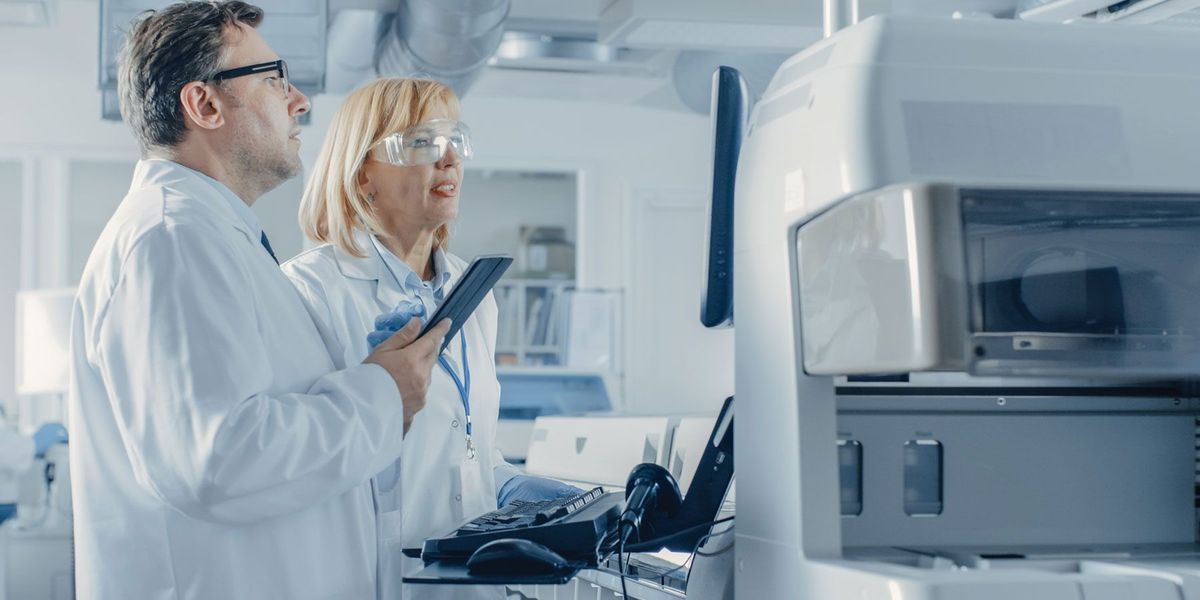
Diagnostic services play a pivotal role in modern healthcare by providing the foundation for accurate and timely medical decisions. The landscape of diagnostic services has undergone transformative changes, with technological advancements, innovative methodologies, and a growing emphasis on personalized medicine shaping the way healthcare professionals diagnose and treat a multitude of conditions. This article explores the evolution of diagnostic services, from traditional methods to cutting-edge technologies, and their crucial role in advancing precision healthcare.
The Evolution of Diagnostic Services:
Historically, diagnostic services relied on basic physical examinations and limited laboratory tests. However, as medical knowledge expanded and technology advanced, the scope and accuracy of diagnostic services broadened significantly.
- Laboratory Diagnostics: Laboratory testing remains a cornerstone of diagnostic services. Blood tests, urine analyses, and other biofluid assessments provide valuable insights into a patient’s health, aiding in the detection and monitoring of various conditions. Technological innovations, such as automated analyzers and high-throughput screening, have enhanced the efficiency and accuracy of laboratory diagnostics.
- Medical Imaging: The advent of medical imaging revolutionized diagnostics by allowing healthcare professionals to visualize internal structures non-invasively. X-rays, computed tomography (CT), magnetic resonance imaging (MRI), and ultrasound are powerful tools for diagnosing conditions ranging from fractures and tumors to cardiovascular diseases. Ongoing advancements in imaging technology continue to improve resolution, reduce radiation exposure, and enable more precise diagnoses.
- Molecular Diagnostics: Molecular diagnostics delve into the genetic and molecular aspects of diseases, offering insights at the molecular level. Polymerase chain reaction (PCR), next-generation sequencing (NGS), and gene expression profiling are examples of techniques that allow for the detection of genetic mutations, infectious agents, and personalized treatment strategies.
- Point-of-Care Testing (POCT): Point-of-care testing brings diagnostic services directly to the patient, bypassing the traditional laboratory setting. Rapid tests for infectious diseases, blood glucose monitoring, and cardiac biomarker assessments are examples of POCT applications that provide quick results, enabling faster decision-making in emergency situations and outpatient settings.
Innovative Technologies Transforming Diagnostics:
- Artificial Intelligence (AI): Artificial intelligence has emerged as a game-changer in diagnostics. Machine learning algorithms analyze vast datasets, improving the accuracy and speed of diagnostic processes. AI applications in medical imaging, pathology, and clinical decision support systems empower healthcare professionals to make more informed decisions.
- Liquid Biopsy: Liquid biopsy represents a non-invasive diagnostic approach that analyzes circulating biomarkers, such as circulating tumor DNA (ctDNA) and extracellular vesicles, in blood samples. This method is particularly valuable in cancer diagnostics, offering a less invasive alternative to traditional tissue biopsies.
- Telehealth and Remote Monitoring: The integration of telehealth and remote monitoring technologies enables patients to undergo diagnostic assessments from the comfort of their homes. Wearable devices, smart sensors, and virtual consultations enhance accessibility and contribute to continuous monitoring for chronic conditions.
- Nanotechnology: Nanotechnology applications in diagnostics involve the use of nanoscale materials for improved sensitivity and specificity. Nanosensors and nanoparticles facilitate early detection of diseases, and their unique properties enhance diagnostic accuracy.
The Role of Diagnostics in Precision Medicine:
Precision medicine, an evolving approach to healthcare, emphasizes tailoring medical treatment to the individual characteristics of each patient. Diagnostics play a central role in this paradigm, providing the necessary information to identify specific genetic, molecular, and environmental factors that influence disease development and progression.

- Genomic Diagnostics: Advances in genomics have enabled the identification of genetic variations associated with diseases. Genomic diagnostics, including genetic testing and whole-genome sequencing, help uncover genetic predispositions, guide treatment decisions, and identify potential risks for inherited conditions.
- Pharmacogenomics: Pharmacogenomics explores the relationship between an individual’s genetic makeup and their response to medications. By understanding how genetic variations affect drug metabolism, healthcare professionals can prescribe medications more effectively, minimizing adverse effects and optimizing therapeutic outcomes.
Challenges and Future Directions:
- Data Security and Privacy: As diagnostic services become more integrated with digital technologies, concerns about the security and privacy of patient data arise. Addressing these challenges is crucial to maintaining patient trust and ensuring the responsible use of sensitive information.
- Integration of Diagnostics into Healthcare Systems: The seamless integration of diagnostic services into healthcare systems remains a challenge. Streamlining workflows, improving interoperability between diagnostic tools and electronic health records, and enhancing communication between healthcare providers are essential for maximizing the impact of diagnostics on patient care.
- Affordability and Accessibility: While diagnostic technologies continue to advance, ensuring affordability and accessibility for all patients is imperative. Striking a balance between innovation and equitable healthcare delivery requires ongoing efforts from healthcare providers, policymakers, and industry stakeholders.

Conclusion:
The evolution of diagnostic services has transformed the landscape of healthcare, enabling more precise and personalized approaches to disease diagnosis and treatment. From traditional laboratory tests to cutting-edge technologies like AI and liquid biopsy, diagnostics continue to play a pivotal role in advancing medicine. As we navigate the future of healthcare, the integration of diagnostics into precision medicine and the ongoing pursuit of innovative solutions will undoubtedly shape the way we approach health and wellness. The journey towards more accurate, efficient, and patient-centric diagnostic services is a testament to the relentless pursuit of progress in the field of medicine.








